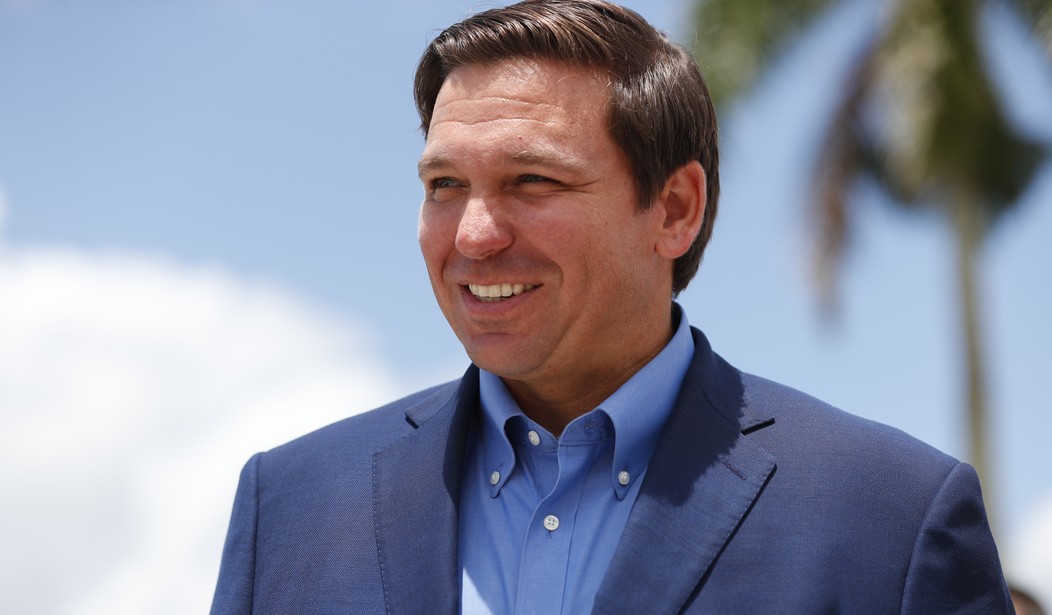There is a lot of misinformation and disinformation being spread about Florida’s Stop WOKE Act. In fact, since the legislation was first proposed, Democrats and their comrades in the activist media have spun hard to make it appear as if the law was designed to suppress speech.
But, as usual, the reality is something drastically different. When it comes to this law, the issue is not the suppression of ideas but how those ideas are presented and whether a school or business engages in discriminatory practices based on skin color.
I came across an op-ed from The Hill written by authors Ethan Blevins and Daniel Ortner with the Pacific Legal Foundation. Both authors appear to be right-leaning, and the group has filed lawsuits against states enacting race-based quotas and laws discriminating against Asian-American students. In the piece, they argue that the Stop WOKE Act, which prohibits certain types of training and teachings that supposedly promote far-leftist antiracist ideas, is not the correct course of action to stop the spread of wokeism and would result in violations of the First Amendment.
“Laws barring businesses and schools from teaching anti-racist ideas, such as Florida’s Stop WOKE Act, mimic the same intolerance displayed by woke progressives. The better path is to encourage open debate, not censorship,” the authors argue.
The law prohibits schools and other institutions from requiring teachings in public schools and corporate training that promote the notion that a “person, by virtue of his race, color, national origin or sex is inherently racist, sexist, or oppressive, whether consciously or unconsciously” or that “virtues such as merit, excellence, hard work, fairness, neutrality, objectivity and racial colorblindness are racist or sexist, or were created by members of a particular [group] to oppress members of another [group].”
Under the Stop WOKE Act, educators are not allowed to teach these ideas to their students, and companies cannot require their employees to participate in training that includes these views as a requirement of employment. Licensing institutions also cannot require applicants to have taken these types of training.
The authors acknowledge that the “ideas that Florida seeks to suppress are bad” and that adherents of wokeism “sow discrimination and division, blacklist dissenters, and scorn individual freedom.”
However, they argue that “We should not fight this illiberalism with more illiberalism.”
The authors remind the reader that the “First Amendment protects ideas that we truly hate,” but that “[p]rivate businesses have a First Amendment right to tell their employees that all whites are privileged oppressors or that colorblindness is racist, though there may be some limits if training creates a hostile workplace.”
The article continues:
And while grade-school teachers may face curriculum constraints, college professors have a First Amendment right to argue that slavery was an essential rationale behind the American Revolution, or that minorities deserve reparations from white taxpayers who played no role in their oppression. Yet under the Stop WOKE Act, such speech is unlawful “discrimination.”
They conclude their article by arguing that “[f]ree speech is a net gain for society, even when it protects odious ideas.” They point to the 1977 case when the American Civil Liberties Union’s David Goldberger defended the free speech rights of Nazis who wished to stage a march in Skokie, Illinois, which had a high number of Holocaust survivors. “He understood two things we must remember: that the First Amendment does not play favorites and that truth need not fear its enemies,” they wrote.
I can understand Blevins’ and Ortner’s concerns about how the Stop WOKE Act might be a hindrance to free speech. When the law was first proposed, I also considered this possibility. But I ultimately supported the law because I concluded that this is not a free speech issue – it is a civil rights issue.
Discrimination on the basis of race is not the same as protecting freedom of expression.
What many erroneously assume about the law is that it does not allow teachers or companies to discuss racial issues at all. The activist media has convinced many that educators are not allowed to discuss America’s fraught history with race. In fact, if one reads the law, it actually mandates that teachers teach the good, the bad, and the ugly about the country’s history.
From the bill:
The history of African Americans, including the history of African peoples before the political conflicts that led to the development of slavery, the passage to America, the enslavement experience, abolition, and the contributions of African Americans to society. Instructional materials shall include the contributions of African Americans to American society.
However, most people can tell the difference between accurately discussing America’s history and intimating that whites, by virtue of their skin color, are inherently racist and that blacks, by virtue of their skin color, are oppressed. Ascribing certain attributes to individuals based on their ethnicity is not only wrong, but it is also a violation of the constitution. Training employees and students to believe that one is flawed by dint of their ethnicity is the antithesis of what the principles of civil rights law are meant to uphold.
To put it simply, these types of teaching are discrimination.
After all, what would happen if a company, university, or K-12 school promoted the idea that black people are inferior? What would happen if they were allowed to use racial slurs against students and employees?
Most of us would balk at the very suggestion. Companies have been successfully sued for this type of thing.
Yes, free speech is a bedrock value that we should fiercely protect. But the Stop WOKE Act isn’t designed to suppress views in the public square – people can still say what they want online or elsewhere. However, racial discrimination is an evil that should not be allowed – especially in government-run entities.














